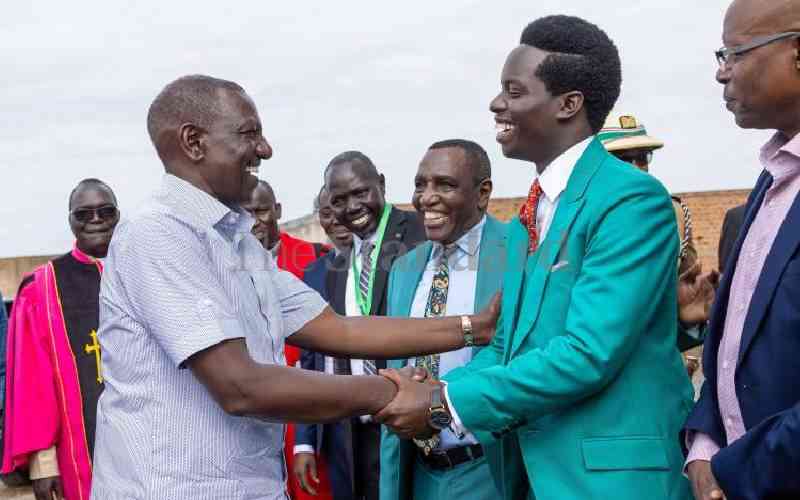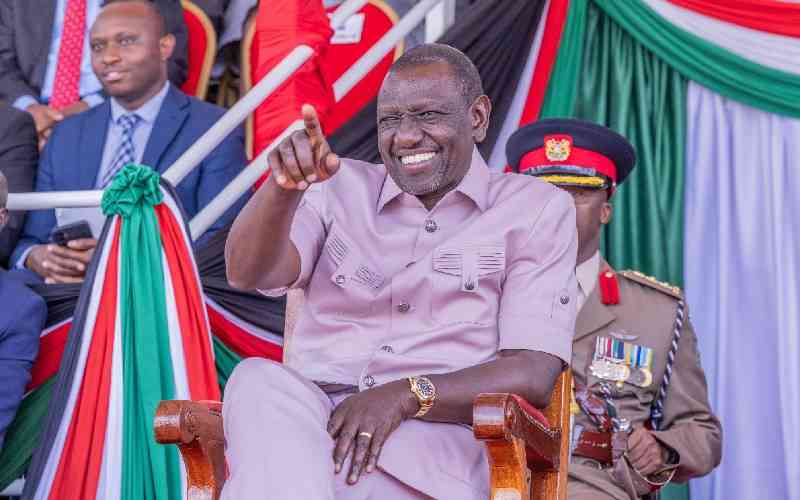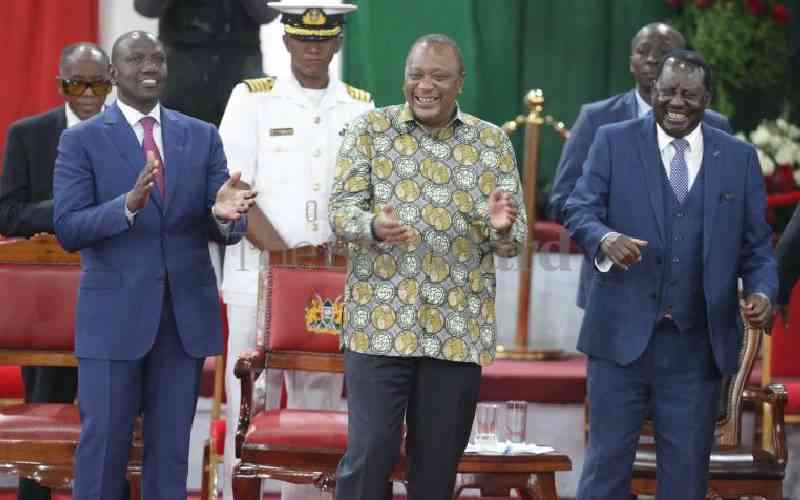The termination of the case against the deputy president at the International Criminal Court is a major African Union triumph.
Since the International Criminal Court (ICC) issued a warrant of arrest for Sudanese President Omar Al Bashir in 2009 and the commencement of the Kenyan cases in 2013, the AU has been on an offensive against the court over alleged bias against Africans, particularly sitting heads of state.
Despite this latest setback, ICC remains the best bet for many poor Africans, particularly the victims of crimes against humanity and genocide that is often aided by the government of the day whether directly or indirectly.
African countries, including the AU, have criticised the court for focusing on African "cases" while turning a blind eye to crimes against humanity committed in other parts of the world.
This argument is defeatist for a number of reasons. One, African countries form a big block of the State Parties to the Rome Statute that established The Hague-based court. Two, joining ICC is voluntary. On February 2, 1999, Senegal became the first country in the world to ratify the Rome Statute.
Three, most of Africa's cases at ICC referred by State Parties. Uganda, DRC, CAR and Mali are all State party self-referral cases. How do we turn around and accuse ICC of being a court against Africans when it is the African countries that referred the cases to the court? Four, and by default, ICC was established at a time when most atrocities were being committed in Africa. The Rwandan genocide of 1994 expedited the establishment of ICC.
On 22 March, 2016, ICC tweeted that had the ICC been established in the 1970s, it would have probably started its operations in Latin America - or in Eastern Europe had it been established in the 90s. This is why ICC has focused its investigations and prosecutions on Africa.
Another criticism of the court is that it is a master of double standards as it does not hold nationals of hegemonic powers like the US to the same standard as Africans.
This argument is a fallacy given that the judicial systems in those western countries are largely independent. For example, a court in the United Kingdom has prosecuted and convicted some officials of a company for bribing Kenyan officials to win tenders.
Despite the overwhelming evidence that has since been shared with the Government of Kenya, local authorities have not started serious investigations. The officials accused of involvement in the scandal are still running important public institutions like the Independent Electoral and Boundaries Commission (IEBC).
So are these the courts to be trusted to prosecute crimes against humanity if they cannot net those behind the Chickengate scam?
Despite its obvious flaws as exposed by the Kenyan cases, ICC is still an important institution for addressing crimes against humanity in Africa, especially where the State is a key perpetrator or collaborator.
Apart from addressing impunity, being a strong deterrent mechanism and holding leaders to account for their roles in crimes against humanity, the court has demonstrated that it can offer incentives for conflict actors to negotiate and compromise.
During the Northern Uganda peace negotiations, the threat of prosecution clearly rattled the LRA military leadership, pushing them to the negotiating table. In Kenya, and in a bid to project an image that they are peace lovers, President Uhuru Kenyatta and his deputy came together and won the 2013 elections.
Stay informed. Subscribe to our newsletter
 The Standard Group Plc is a
multi-media organization with investments in media platforms spanning newspaper
print operations, television, radio broadcasting, digital and online services. The
Standard Group is recognized as a leading multi-media house in Kenya with a key
influence in matters of national and international interest.
The Standard Group Plc is a
multi-media organization with investments in media platforms spanning newspaper
print operations, television, radio broadcasting, digital and online services. The
Standard Group is recognized as a leading multi-media house in Kenya with a key
influence in matters of national and international interest.
 The Standard Group Plc is a
multi-media organization with investments in media platforms spanning newspaper
print operations, television, radio broadcasting, digital and online services. The
Standard Group is recognized as a leading multi-media house in Kenya with a key
influence in matters of national and international interest.
The Standard Group Plc is a
multi-media organization with investments in media platforms spanning newspaper
print operations, television, radio broadcasting, digital and online services. The
Standard Group is recognized as a leading multi-media house in Kenya with a key
influence in matters of national and international interest.







